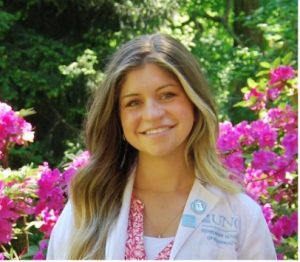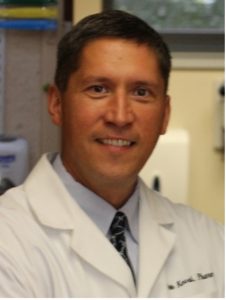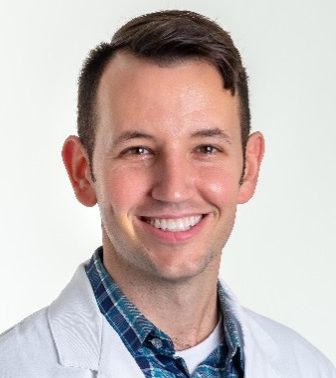Welcome to the UNC Eshelman School of Pharmacy Newsletter for Experiential Partners and Preceptors! Newsletters will share updates about the School and Experiential Programs, recognize our preceptors and students, and provide teaching pearls for preceptors.
Student Spotlight
Hannah Bensky is currently a fourth year Doctor of Pharmacy Candidate at the UNC Eshelman School of Pharmacy originally from Charlotte, North Carolina. Prior to beginning her pharmacy education, she earned her Bachelor of Arts in Journalism with a concentration in Public Relations from the Hussman School of Journalism and Media at UNC Chapel Hill. She currently is a student researcher in the UNC Research and Scholarship in Pharmacy program, a teaching assistant for undergraduate introductory biology at UNC Chapel Hill and works as a pharmacy intern with CVS Health. Hannah hopes to pursue a career in community or ambulatory care pharmacy, where she can help members of the community manage their medications and act as a reliable and accessible source of knowledge to help improve patient health.
Hannah recently completed an advanced pharmacy practice experience with Ping Rogers, RPh at UNC Central Outpatient Pharmacy in Chapel Hill. Her preceptor shared the following to recognize Hannah’s contributions. “Hannah consistently exhibited professionalism, an eagerness to learn from the APPE, and tenacity in producing deliverables that she can be proud of. She not only was well-prepared each day for discussion and learning; she was also extremely productive during her time with us. She was able to make significant progress on a proposal for a standardized Magic Mouthwash order set (which has been on our “wish list” for quite some time). Her ability to gather suggestions from all the staff pharmacists and condense them into one cohesive proposal shows her resourcefulness and strong communication skills. Other projects she completed include: revision/edits to a pharmacy technician quiz, preparing a reference for converting patients from Victoza to Trulicity, and assistance in working with First Database’s Medication program to enhance our ability to translate prescription sigs for non-English speaking patients. One of the first steps in the translation process is taking the original raw sig and translating it to a normalized English translated sig. Hannah helped review samples of the original sig vs normalized English translated sig to detect any deviation or clinical difference between the two sigs. Her extensive retail pharmacy acumen definitely helped her fit into our workflow and she was able to complete the majority of assigned work with a minimal amount guidance after the first week. She also brushed up her patient counseling skills, reviewed aspects of pharmacy law, and helped resolve a multitude of prescription issues that were presented to her by various team members during the course each workday.
She embodies the excellence that I have come to expect from our students at Eshelman School of Pharmacy!”
When asked about her experience at Central Outpatient Pharmacy, Hannah shared that she enjoyed the opportunity to work on projects that would have a lasting impact stating, “It was awesome to know that I was able to make a difference at an institution as well respected as UNC.” Furthermore, she appreciated that she could work on projects and other work that aligned with her skills and future goals. She also was grateful for the support of the precepting team noting that they “always provided a fun and supportive environment, going out of their way to get to know me and make the experience the best it could be.”
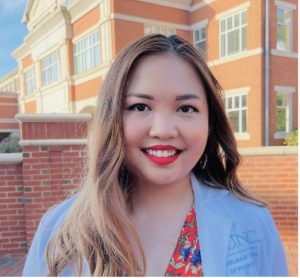 Grace Paleracio, Class of 2024
Grace Paleracio, Class of 2024
Grace Paleracio is currently a second year Doctor of Pharmacy student at the UNC Eshelman School of Pharmacy. Grace was born in Manila, Philippines and moved to the US at the age of 4 years old. Spending the majority of her formative years in San Antonio, TX, Grace earned her Bachelor of Science in Public Health with a concentration in Epidemiology and Infectious Diseases in 2019 from the University of Texas at San Antonio. Grace’s interest in Public Health continued as she pursued a master’s in public health with a concentration in Epidemiology from the University of Texas Health Science Center Houston in 2020. Her interest in pharmacy began during her senior year of high school where she enrolled in a pharmacology course and earned her certification as a pharmacy technician.
Grace currently works as a pharmacy intern in the IV department at the Omnicare in Raleigh, a pharmacy technician on the Medication Transition Specialist Team at UNC Hospital, and as a TA for the pharmaceutics class at the pharmacy school. She also recently joined a RASP project focusing on genetic variations in the human brain related to epilepsy. She currently serves as the Student College of Clinical Pharmacy (SCCP) Treasurer, Global Engagement Organization’s (GEO) Global Ambassador Program (GAP) Vice President, and Carolina Association of pharmacy Students’ (CAPS) Gender Health Co-Chair. She is still exploring a variety of fields within the profession. Grace’s goal after graduation is to pursue a clinical pharmacy residency and use her various experiences to advocate for the profession and advance the importance of pharmacists on clinical teams. Also, with her role as an officer in GEO and as a first-generation college student, she would like to explore how explore how to improve health disparities and access to medications starting within our borders and expanding beyond to other countries in time.
Grace completed a rotation with Jodi Mayton, BS Pharm at UNC Health in January. Her preceptor recognized her intensive research and wonderful supporting summary document with references on Intestinal Failure Associated Liver Disease (IFALD). Her preceptor also praised her presentation skills to the interdisciplinary Adult Peripheral Nutrition Team and Gastrointestinal (GI) Medicine Fellows sharing, “everyone was impressed with her work and her ability to distill the information into a useful reference document for us.” Grace noted the following about her work at the site: “After working with Ms. Jodie Mayton, I gained an appreciation in the GI system, monitoring ever-changing labs and the art of managing TPNs. I looked forward to taking on new patients, working them up, and following their case. It was so satisfying to follow one of our patients from the very beginning of their admission, watching their condition improve, and being able to sign-off on their profile as they started their discharge process. This rotation experience was especially rewarding when Ms. Mayton assigned me to research about IFALD, a topic that comes up a lot in her service but is not well known/studied on. I learned so much through her site and enjoyed my time thoroughly that it almost didn’t even feel like I was on immersion, earning school credits.”
Preceptor Spotlight
Dr. Dove is currently a pharmacist at Advance Community Health (ACH), which provides medical and dental care as well as pharmacy services to many adult and pediatric patients who have low to no income, with or without insurance.
She holds a Bachelor of Business Administration with a concentration in Management from North Carolina Central University. She also holds a Doctor of Pharmacy from Campbell University. Her areas of interest include smoking cessation and Type 2 Diabetes. From the Association of Diabetes Care & Education, she received the Insulin Therapy Certificate which further expands her knowledge of insulin therapies.
Publications include Keep Cheering, published in the Journal of American Pharmacists Association in 2020 and Just Ask Your Pharmacist published in the Divine Connections Magazine in 2020. Dr. Dove enjoys meeting patients who have all types of questions regarding their health, however she also knows some questions are better answered by the physician or health care provider. Therefore, she offers a simple to use Medical Appointments Journal available for purchase on Amazon which everyone can use to jot down important questions in preparation for upcoming health care appointments.
Diversity is one of the aspects that makes ACH unique. With Dr. Dove, students have the opportunity to work closely with providers (Physician, PA, NP, Dentist). ACH providers are of various backgrounds, ethnicities, and races and provide care to a diverse and underserved population. Students can expect to discover firsthand how socioeconomic barriers impact health outcomes. As a result, students can gain valuable experience in effectively addressing such barriers while formulating therapy recommendations which patients can actually access. Amy Rowley, Class of 2022, shared the following about the learning experience with Dr. Dove. “During my rotation at Advanced Community Health, I had the opportunity to care for an underserved patient population. My preceptor, Dr. Marico Dove is passionate about providing high quality and affordable healthcare to her patients and continuously advocates for their health and wellbeing.”
Regarding social determinants of health and health disparities, below are a few tips that Dr. Dove utilizes that others may find helpful, depending on their practice:
- Encourage students to check every patient’s ability to pay in advance and tailor recommendations to what the patient can actually access.
- Be aware of programs available to help patients access medications.
- Take advantage of the expertise of other healthcare professionals in your organization (i.e. social workers, dieticians) and refer patients when appropriate.
- Meet patients where they are, address their concerns, and involve them in the decision making process when the opportunity presents. Sometimes explaining to patients the “why” behind the recommendation may motivate patients.
- When patients are nonadherent, do not be so quick to assume they do not care about their health. Rather take a moment to investigate what the barriers to nonadherence are. Is the patient nonadherent due to lack of transportation, lack of money, low health literacy, lack of a safe place to store medications due to experiencing homelessness, etc.
- If possible, have resources readily available to share with patients to address their specific barrier.
Dr. Koval is currently Associate Professor of Clinical Education University of North Carolina Chapel Hill Eshelman School of Pharmacy. He is also Director of Pharmacy Education with the Greensboro Area Health Education Center (AHEC). He recently celebrated his 25-year anniversary as a clinical pharmacy faculty. He has precepted over 700 months of students/residents and has assisted in the training of 47 ambulatory care focused pharmacy residents.
At his practice site, the Cone Health Family Medicine Residency Program, Dr. Koval strives to have students and residents in training participate at the highest level they are capable. His Clinical Pharmacist Practitioner (CPP) referrals are a variety of chronic disease management including smoking cessation, diabetes, hypertension, and pulmonary visits. Students and residents start their rotations with a variety of abilities, interests, experience, and goals. Dr. Koval aims to involve all learners but also wants them to grow into patient care roles as their knowledge and experience allows. Encouraging them to do more of the patient care encounters, medication reconciliation, disease state history interviewing, drug therapy education, motivational interviewing and care documentation throughout the month are common foci for development. COVID has created a need to adapt the daily patient care approach and face-to-face encounters diminished. Dr. Koval expanded the use of daily chart review targeting scheduled patients for therapy optimization communicated through just-in-time suggestive messaging to his physician colleagues. He continues to enjoy the daily variability, interprofessional collaboration, opportunities to improve the health of patients and development of young pharmacist clinicians.
When asked about the learning experience with Dr. Koval, Austin Paytes, Class of 2022, shared the following perspectives. “Dr. Koval really highlighted what a pharmacist could do in this setting by managing these chronic disease states, stacking multiple therapies in a very patient-centered approach. Beyond his direct clinical role as a pharmacist, Dr. Koval places an enormous emphasis on education and professional development for pharmacy students, medical students, as well as pharmacy and medical residents. He was constantly trying to identify gaps in knowledge and fill those gaps. He has helped me beyond that rotation prepare for residency through application advice, interview prep, and providing career advice to both pharmacy students and residents so we can find the best fit for our profession. I believe he is likely the best teacher I have ever had as he truly champions every aspect of what makes a great pharmacist including clinical practice, research, education, and career development.”
Dr. Koval has also contributed to the profession at the national level. In 2020, Dr. Koval stepped away from his 11 years of involvement with the Board of Pharmacy Specialties (BPS). Dr. Koval was involved with the Board Certification in Ambulatory Care credential and also served on the BPS executive board including a year as the board Chair.
At the state level, Dr. Koval has enjoyed contributing to the efforts of the North Carolina Association of Pharmacists (NCAP). In 2021, NCAP bestowed the Don Blanton award to him. This award, recognized him for his contributions to the state of North Carolina. Dr. Koval also serves as the planning committee chair for the North Carolina Ambulatory Care Practice Forum which recently held its 6th annual program.
Preceptor Recognition
North Carolina Association of Pharmacists (NCAP) 2022 Election Results
Congratulations to the following UNC Eshelman School of Pharmacy Preceptors for being elected to serve in leadership roles with NCAP. Thank you for your service to the profession and for your mentorship of our students.
Preceptor Pearl
Robert Hubal, PhD
Associate Professor
UNC Eshelman School of Pharmacy
The Influence of Multiple Intelligences on Students’ Experiences
As preceptors, you have a unique opportunity to shape the experiences that your students face to their capabilities. One well-known theory of people’s ability is that of Gardner’s “multiple intelligences”. Originally proposed in the early 1980s and since refined, the theory holds that any one person has a unique set of aptitudes and competencies. Some people are more logical than others; some are more verbal. Some exceed at interpersonal skills; some are very good at sensing in themselves. Some people, more than others, have a knack for ‘tuning in’ to the environment; some are better at viewing the ‘big picture’.
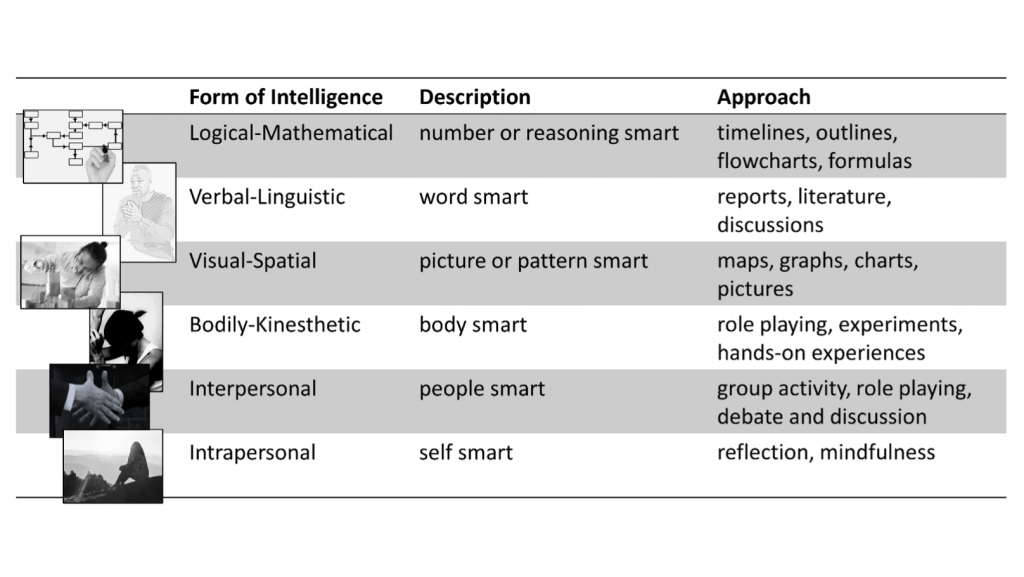 The goal to using the multiple intelligences approach is to teach from a variety of perspectives. When there is a single right answer, stick to it; do not permit students to resolve to the wrong solution. But when there are gradations of good outcomes, or different approaches that can work in the given situation, allow students to learn the solution path that works best for them.
The goal to using the multiple intelligences approach is to teach from a variety of perspectives. When there is a single right answer, stick to it; do not permit students to resolve to the wrong solution. But when there are gradations of good outcomes, or different approaches that can work in the given situation, allow students to learn the solution path that works best for them.
Here are some tips that educators recommend for doing so:
- Establish set times for guidance and feedback. Allow those students who need to work through problems logically, as well as those who need to “talk it out”, to explore solutions with you. Do not provide answers; instead encourage further investigation, research (e.g., in the literature), and reflection.
- Encourage different mindsets. Get students who are good at introspecting, and those who are socially adept, to place themselves in the shoes of the patient or colleague. Whatever the situation, encourage students to see other perspectives and identify solutions to the problem that best satisfy all involved.
- Use charts and analogies. Sketch out the problem and solution paths using a flowchart. Have the student explore different paths and their likely outcomes, to work through better and worse approaches. Compare and contrast the problem and solution to other situations that the student may have experienced.
- Set a positive tone. Students who feel socially, emotionally, and even viscerally welcome will be encouraged to engage in the activities. Set boundaries, and then let students use their own tendencies to work through situations.
Reference:
Gardner, H. Frames of Mind: The Theory of Multiple Intelligences. New York: Basic Books, 1983.
Nutritional Psychiatry
Mimi Nguyen, Class of 2022
Suzanne Harris, PharmD, BCPP, Director of Well-Being and Resilience
UNC Eshelman School of Pharmacy
Well-being can be affected by a variety of different factors, including diet. Nutritional psychiatry is a growing area of study on how nutrition can be involved in the etiology and treatment of mental health conditions, since the GI tract is home to bacteria that can greatly influence the production of neurotransmitters (such as serotonin and dopamine). It is widely known that nutrition affects physical health, but it also can affect mental health and overall well-being. Here are some tips for eating habits that are healthy for both the mind and body.
- Stay well-hydrated: dehydration can affect mood and cause fatigue and difficulty concentrating.
- Eat a well-balanced diet, starting with breakfast: avoid foods that can make blood sugar rise and fall rapidly, which can cause changes in mood and energy.
- Don’t skip meals: inconsistent mealtimes can cause fatigue and changes in mood and energy.
- Have good “gut health”: parts of the GI tract communicate with the brain to maintain overall well-being.
- Manage caffeine use: heavy caffeine use can affect sleep and cause irritability and nervousness.
Making small changes towards having a healthy diet and eating habits can go a long way to support a positive mood. To learn more about nutritional psychiatry, please review the references for more information.
References
- American Psychological Association. The Link Between Food and Mental Health. Accessed November 2021. https://www.apa.org/monitor/2017/09/food-mental-health
- Harvard Health Publishing. Nutritional Psychiatry: Your Brain on Food. Accessed November 2021. https://www.health.harvard.edu/blog/nutritional-psychiatry-your-brain-on-food-201511168626
- Food for Your Mood: How What You Eat Affects Your Mental Health. Accessed November 2021. https://www.aetna.com/health-guide/food-affects-mental-health.html
- Mind UK. Food and Mood. Accessed November 2021. https://www.mind.org.uk/information-support/tips-for-everyday-living/food-and-mood/about-food-and-mood/
Newsletter Suggestion box
We would love to hear from you! Please submit your feedback and suggestions for newsletter improvement along with ideas for future content (preceptor spotlight, student spotlight, preceptor pearl, etc.) here.
Upcoming Events and Other Information
Preceptor Design Lab: Accessibility in Didactic and Experiential Settings
12:00 pm – 1:00 p.m., Thursday, March 10, 2022, via Zoom
To Register Click Here by March 4th, 2022
Office of Experiential Programs Contact Information
Office Leadership:
Nicki Pinelli Reitter, PharmD, MS, FCCP, CDE
Assistant Dean of Experiential Programs
Responsible for leading the Experiential Education Program and for building and sustaining strategic experiential partnerships. The Assistant Dean of Experiential Programs also serves as the lead administrator of the Experiential Education Program and is responsible for experiential practice site and preceptor engagement initiatives with the School.
Interim contact for student academic, well-being, professionalism, or discrimination/harassment concerns. Provides Eshelman Care Line and COVID Exposure oversight.
nickipinelli@unc.edu
Christy Holland, PharmD, BCACP
Director of Experiential Programs
Provides oversight of Immersion and Advanced Immersion experiences and serves as the primary point of contact for guidance regarding experiential policies and procedures. Provides assistance with setting student expectations, structuring learning activities to meet learning experience requirements, and guidance with student evaluations.
christy_holland@unc.edu
Experiential Placement and Systems Support:
Jenny Kaselak, BS, MEd
Experiential Programs Manager
Directs student experiential placements and scheduling. Contact for AHEC housing and payments and CORE/ELMS RxPreceptor account questions.
jenny_kaselak@unc.edu
Student On-boarding and School Requirements:
Sharon Wheat, AA
Experiential Programs Quality Specialist
Ensures student completion of site-specific onboarding and school requirements (e.g. immunizations, drug screenings, criminal background checks, CPR, HIPAA Training, OSHA Training, TB Status, and other onboarding as required by sites). Point of contact for site affiliation agreements and memoranda of understanding.
skwheat@unc.edu
Preceptor Training, Development, and Recognition:
Charlene Williams, PharmD, BCACP, CDCES
Director of Preceptor Development
Develops and oversees preceptor onboarding, training, development, and recognition. Point of contact for preceptor training and development needs and preceptor newsletter content.
charlene_williams@unc.edu
Newsletter Content Editor:
Charlene Williams, PharmD, BCACP CDCES
Charlene_williams@unc.edu
Newsletter Proofreader:
Brittany Jennings
Brittany_jennings@unc.edu


